Based on a true story, a 17th-century nun becomes entangled in a forbidden lesbian affair with a novice. But it is Benedetta’s shocking religious visions that threaten to shake the Church to its core. A film by Paul Verhoeven, starring Virginie Efira, Charlotte Rampling, Daphné Patakia, Lambert Wilson, Louise Chevillotte, Hervé Pierre, Clotilde Courau, and Olivier Rabourdin.
BENEDETTA
Paul Verhoeven
(2021)
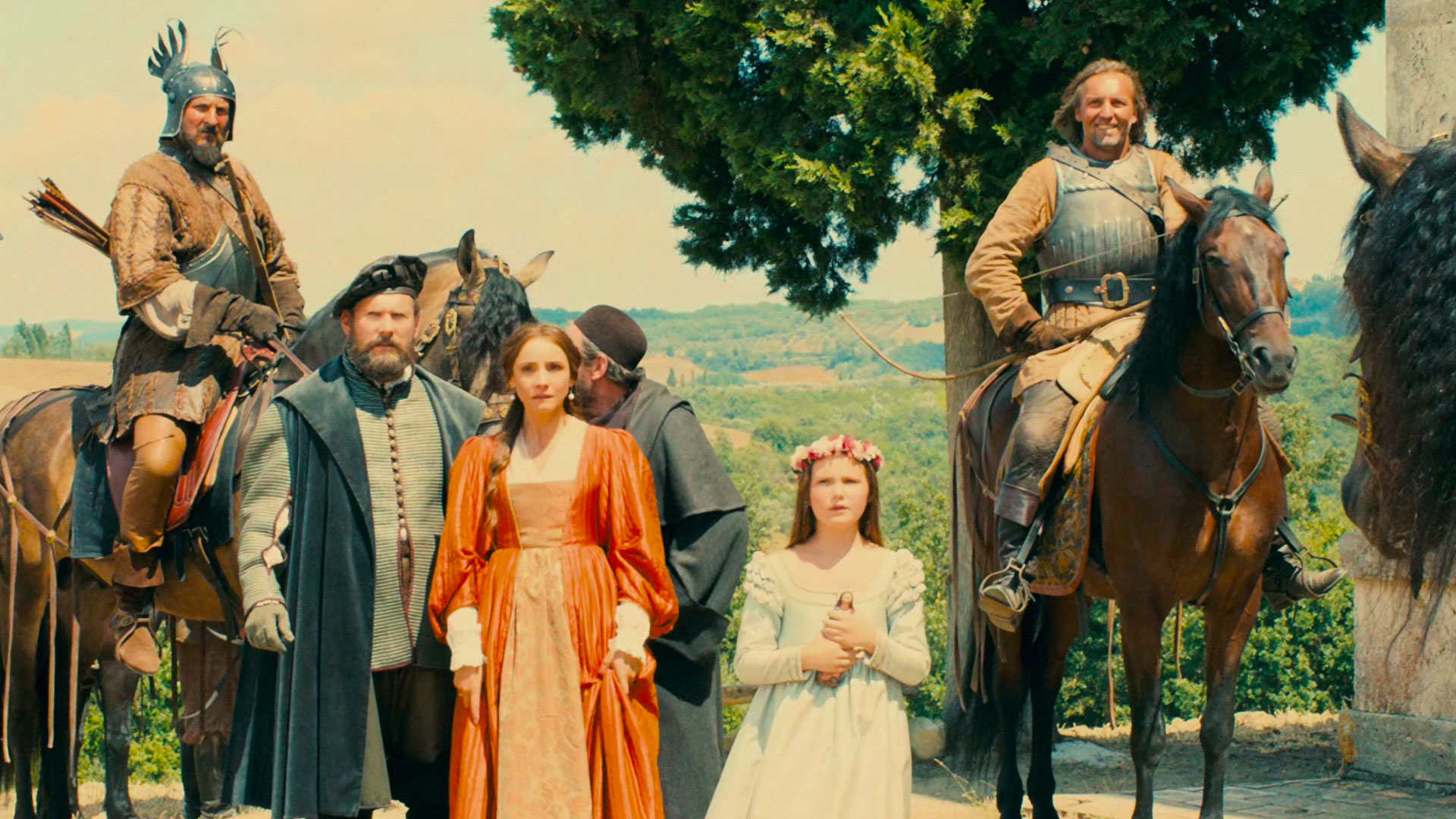
Benedetta’s parents, believing their daughter was miraculously saved by God, bring Benedetta Carlini (Elena Plonka to the Theatine convent run by Abbess Felicita (Charlotte Rampling) at the age of nine. This is done as a way to express their gratitude for her life being spared. Benedetta’s parents also believe that God has bestowed a special power upon their daughter.
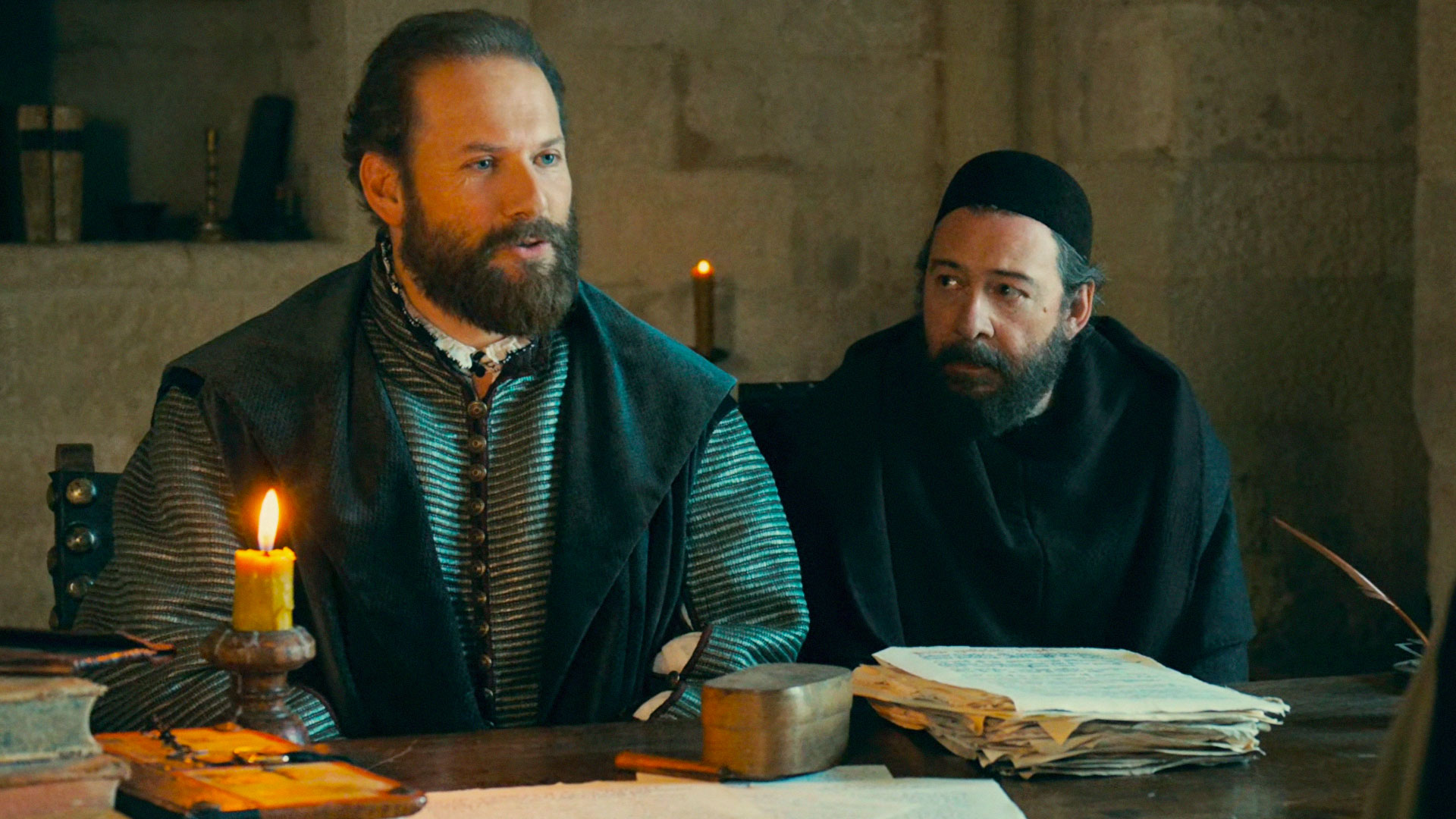
Every year, hundreds of young girls have parents who wish for them to become nuns and serve God at the Theatine convent. Abbess Felicita inform Benedetta’s parents that only three girls would be accepted this year. To secure their daughter’s spot, Benedetta’s father agrees to donate 100 gold coins.
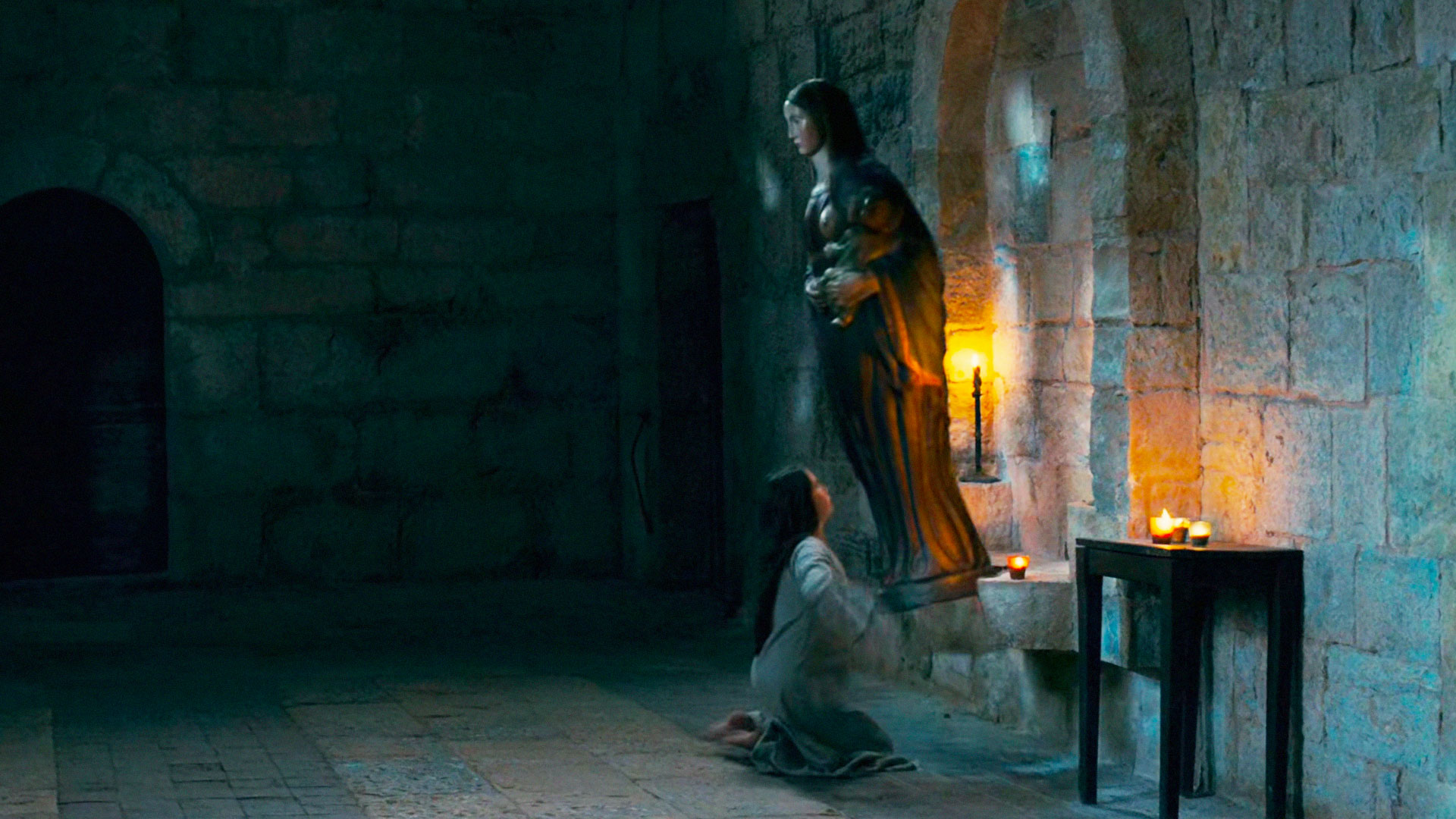
On the first night Benedetta moves into the convent, the statue of the Virgin Mary falls onto her as she prays. Miraculously, she emerges unscathed, without a single scratch. This incident ignites whispers among the nuns, suggesting divine protection might shield her. However, no further miracles manifest until Benedetta (Virginie Efira) reaches the age of eighteen. Then, she begins experiencing recurring visions of Jesus calling her to become his wife. These visions induce psychotic episodes, leaving her unable to control herself.
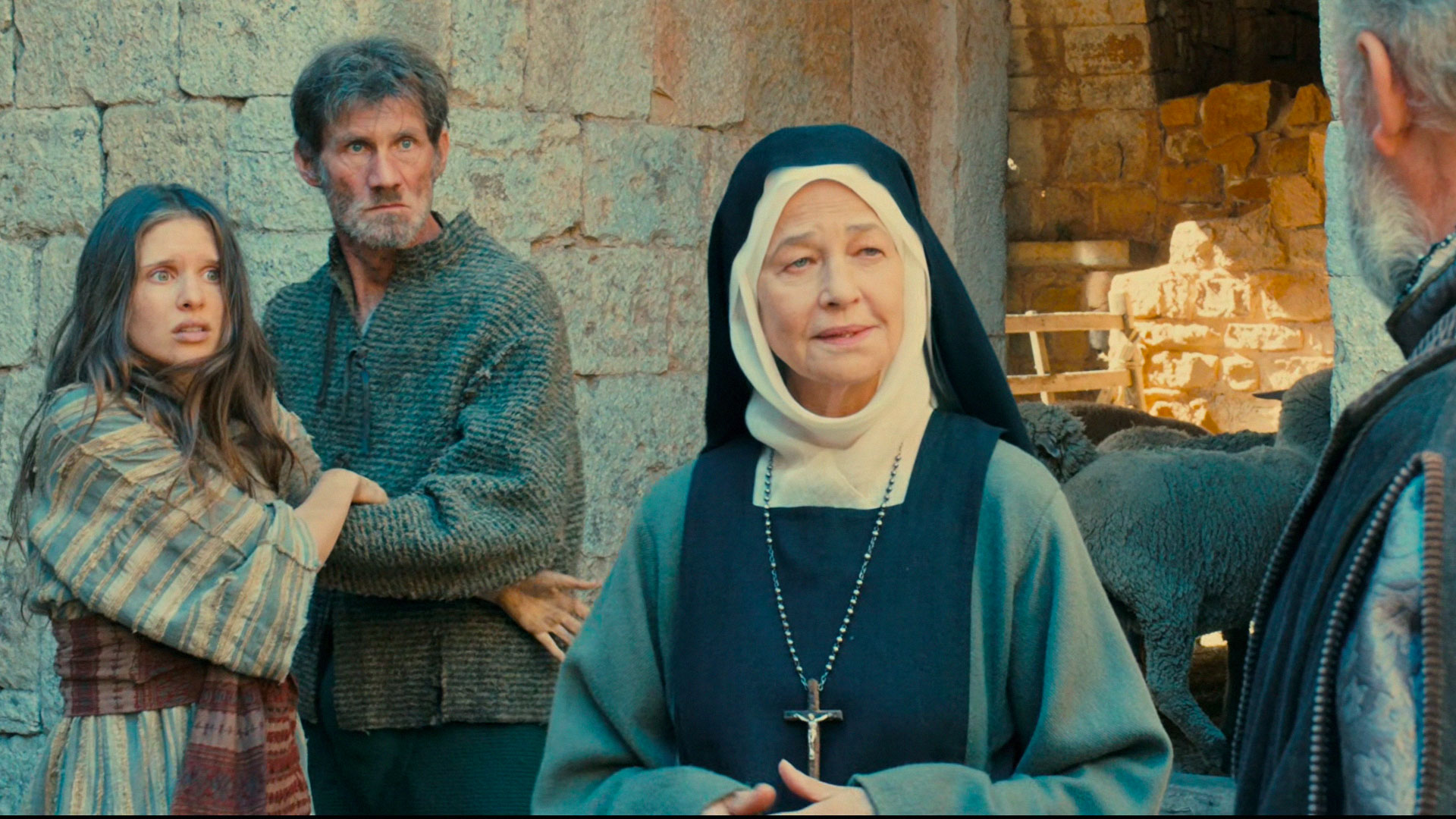
Seeking refuge from her abusive father, a young peasant woman named Bartolomea (Daphné Patakia) arrives at the convent gates. Touched by her unfortunate situation, Benedetta appeals to her father, who agrees to donate funds, securing Bartolomea’s place within the convent’s protective walls. Little does Benedetta know, Bartolomea’s arrival marks a pivotal point in her life, one that will forever alter her course.
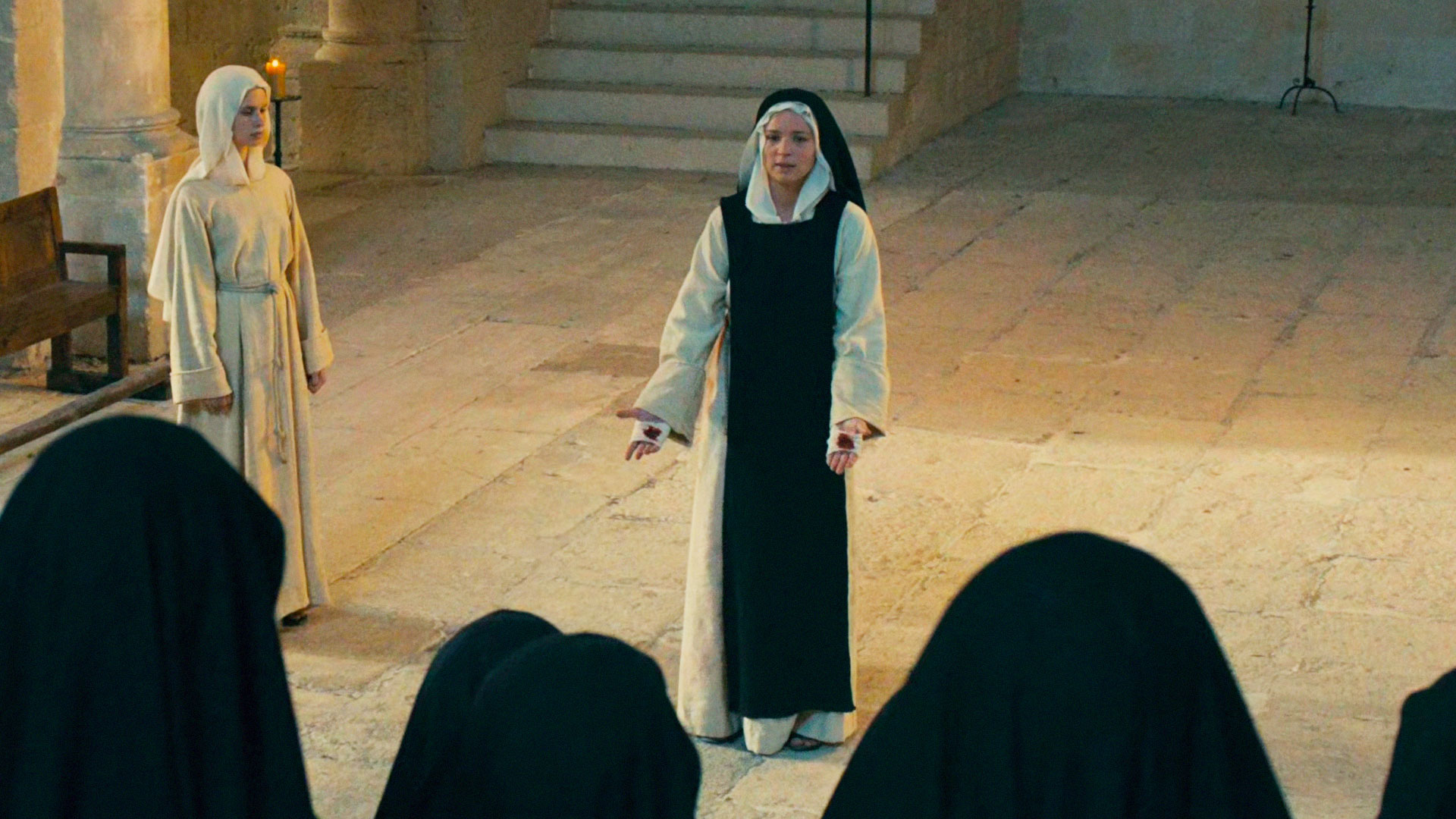
Benedetta’s recurring visions of Jesus escalate in frequency and intensity, pushing her to the brink of illness. Abbess Felicita assigns Bartolomea to tend to her. One night, during a vision, Jesus asks Benedetta to touch his hands. Upon waking, she bears the stigmata on her palms and feet. This phenomenon convinces the nuns of her divinely chosen status. However, Abbess Felicita harbors doubts. Historical records suggest miracles appear during prayer, not sleep. Moreover, Benedetta lacks the forehead wounds typically associated with the crown of thorns.
Stigmata are bodily wounds, scars and pain which appear in locations corresponding to the crucifixion wounds of Jesus Christ: the hands, wrists, feet, near the heart, the head (from the crown of thorns), and back (from carrying the cross and scourging).
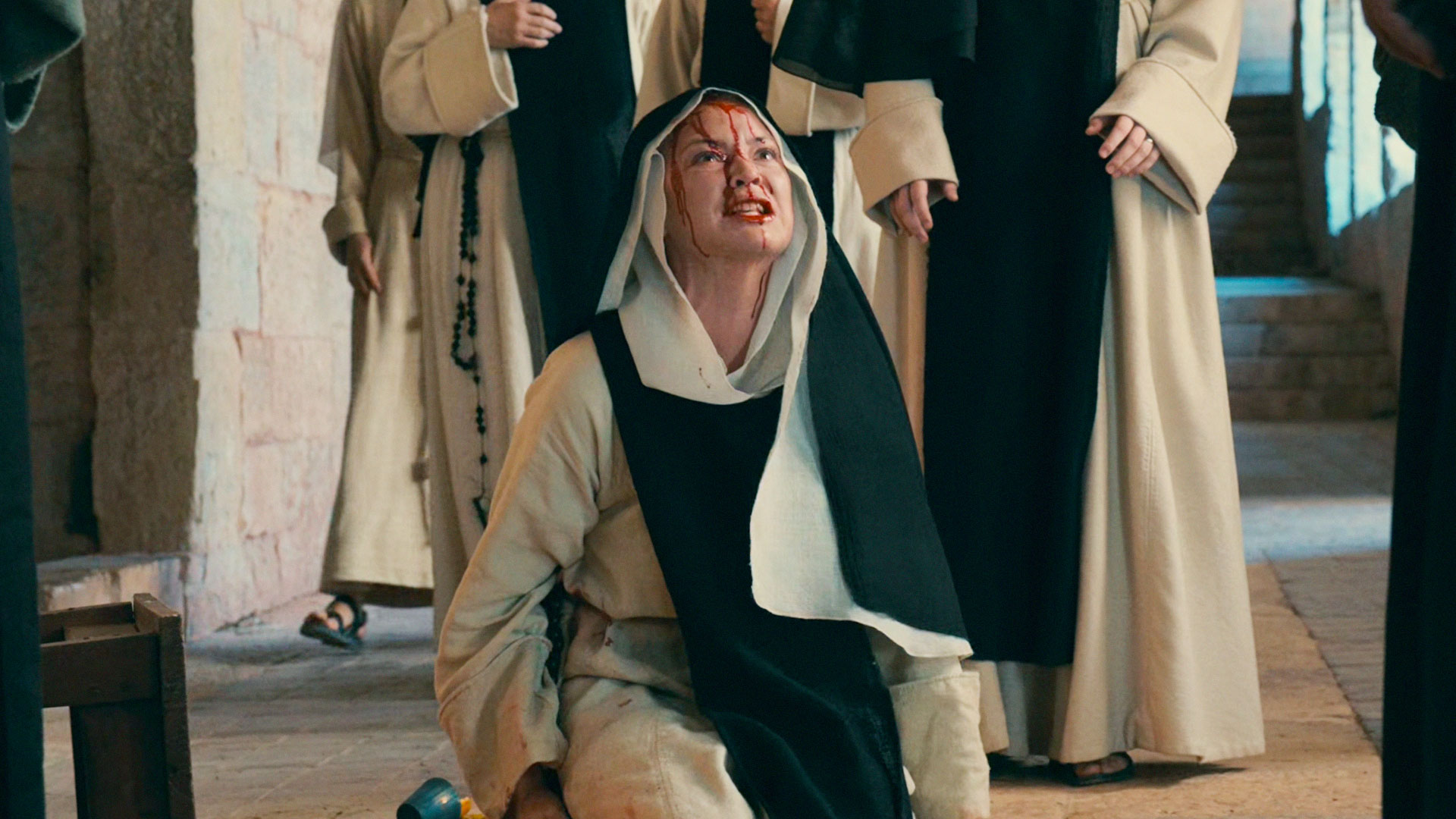
An investigation reveals that all of Benedetta’s stigmata, except the forehead scars, are genuine. As Felicita and Paolo discuss this puzzling discrepancy in the chamber, Benedetta prays alone before the Virgin Mary statue outside. Suddenly, she collapses. A deep, angry male voice, presumed to be Jesus, erupts from her, castigating those who doubt his “wife.” Blood streams down her face from new wounds on her forehead, witnessed by multiple spectators. This miraculous display fuels rumors of Benedetta’s divinity, solidifying her image as a saint and divine messenger. Soon, the Church declares her the new leader of the Theatine convent, replacing Felicita.
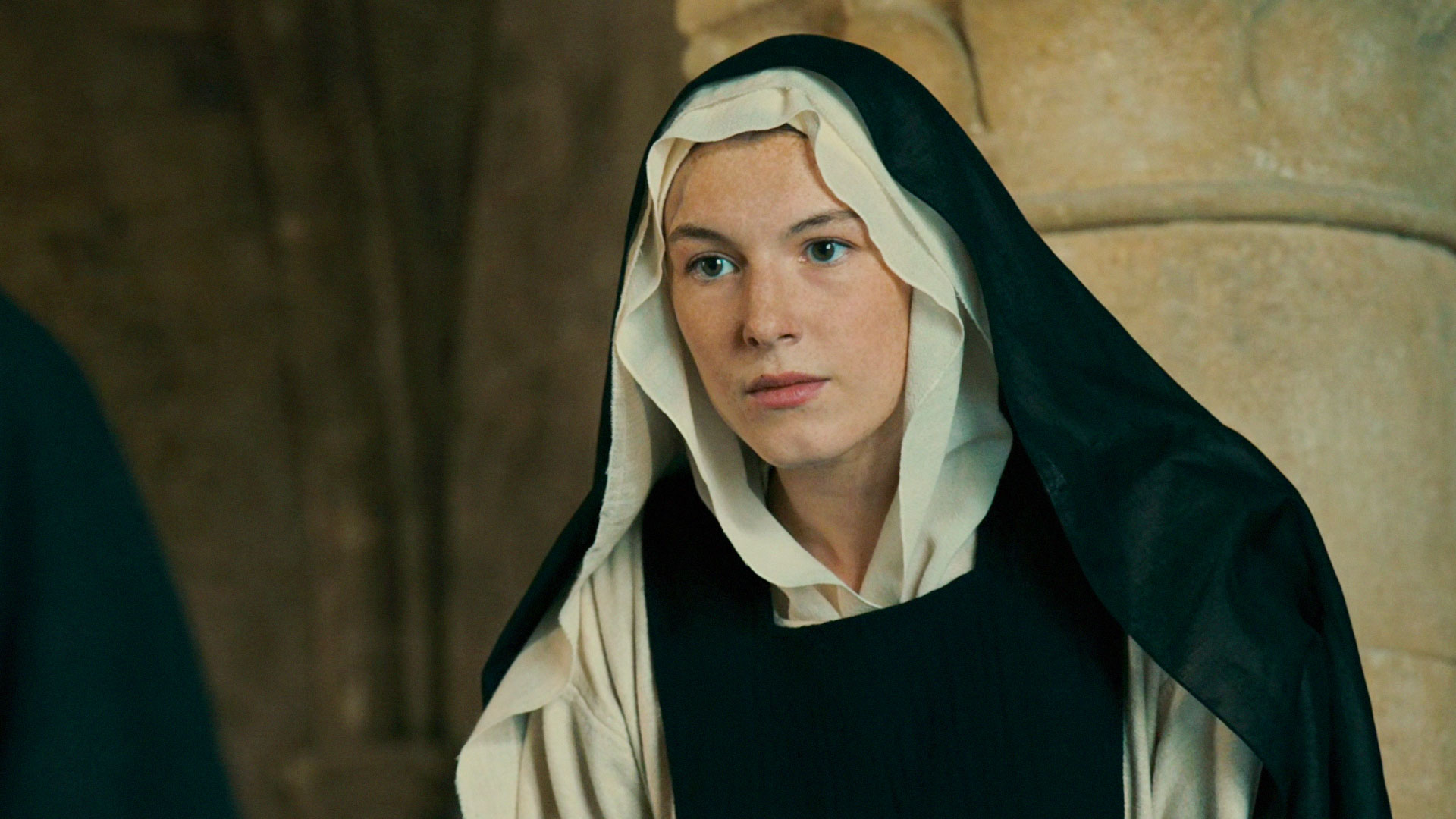
Christina (Louise Chevillotte), a skeptic among the nuns, believes Benedetta intentionally inflicted her wounds. Despite lacking concrete evidence or witnessing the act, she lies in the confession, fabricating seeing Benedetta harm herself with a shard of broken pottery. However, Abbess Felicita rebukes Christina’s accusation, citing her earlier admission of not witnessing the act. While Felicita doesn’t believe in Benedetta’s divine possession, she recognizes the increased popularity and political leverage the story brings to the Theatine convent.

BENEDETTA, a film inspired by Immodest Acts: The Life of a Lesbian Nun in Renaissance Italy, American historian Judith C. Brown’s 1986 non-fiction book, tells the true story of Sister Benedetta Carlini (1590-1661), a 17th-century Italian nun accused of lesbianism and other controversial acts.
Judith C. Brown is an American historian and a Professor Emerita of History at Wesleyan University. A specialist on the Italian Renaissance, she is considered a pioneer in the study of the history of sexuality whose work explored the earliest recorded examples of lesbian relationships in European history.
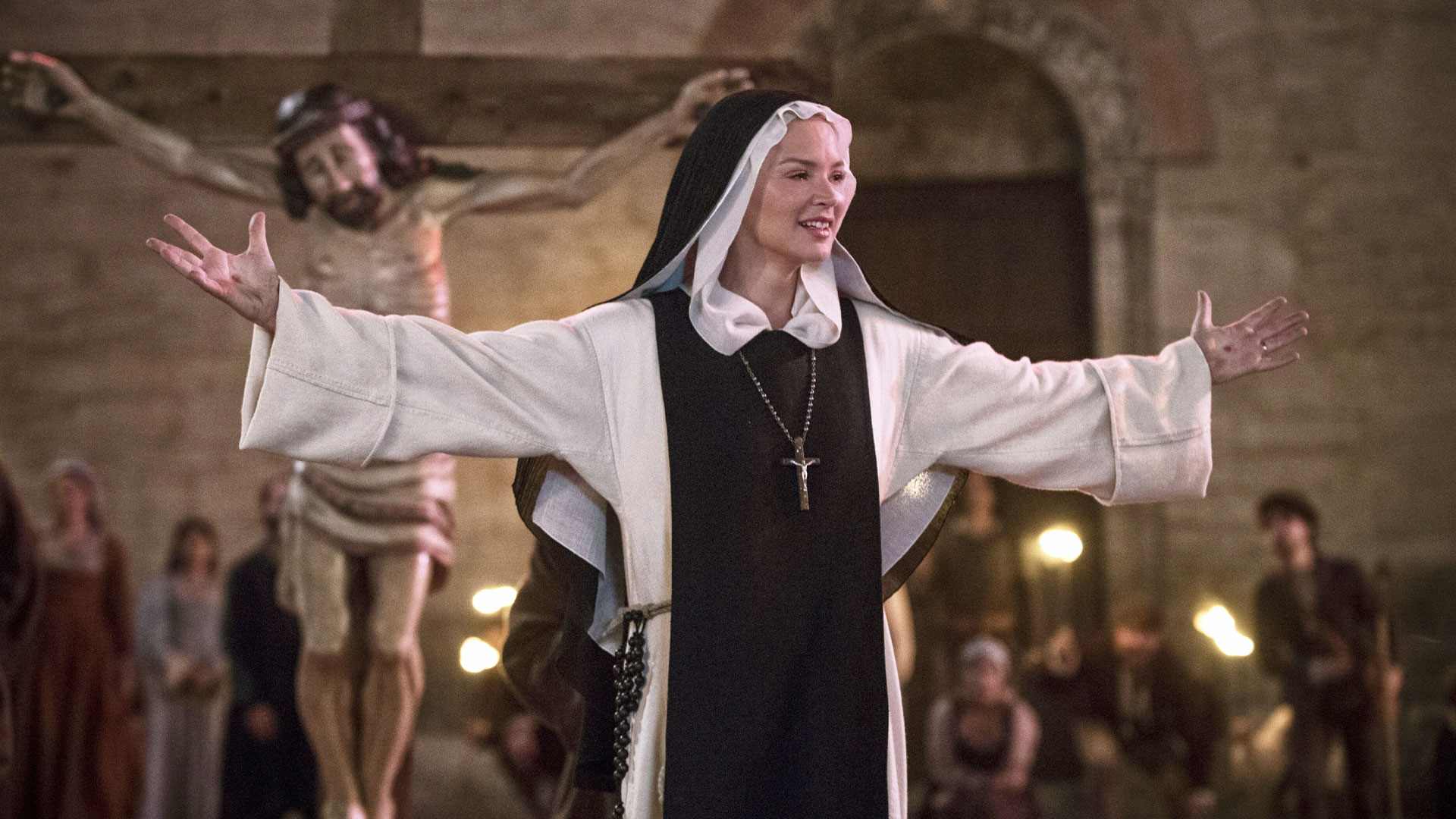
Directed by Dutch filmmaker Paul Verhoeven, the film’s first half is incredibly compelling. Supernatural and ambiguous elements abound, particularly in the character of Benedetta. Viewers find her mysterious and struggle to determine whether she is truly the chose one.
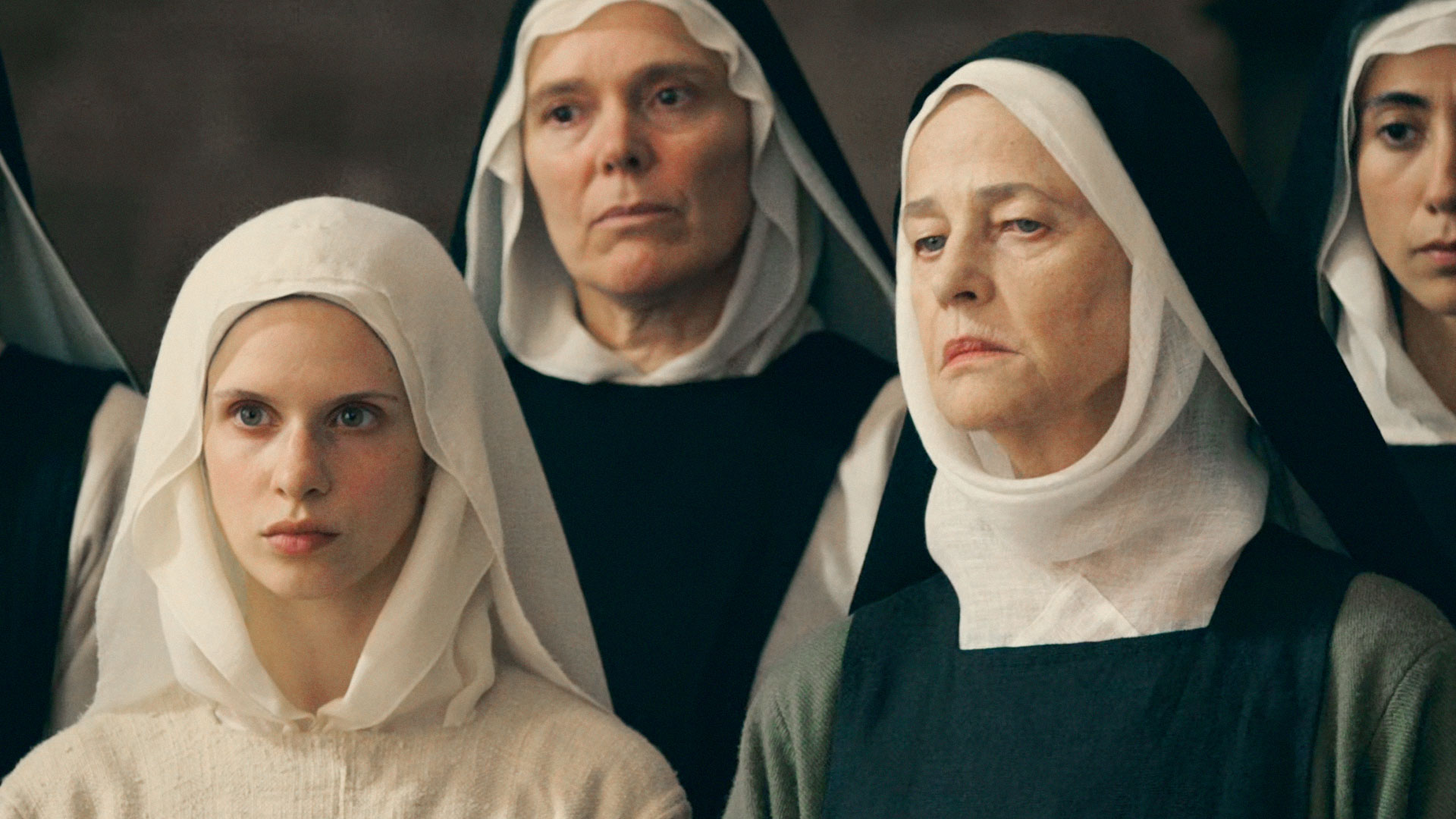
Charlotte Rampling’s stellar performance as Abbess Felicita leaves a lasting impression every time she appears on the screen. Daphné Patakia also delivers an amazing performance as Bartolomea. She looks both indulgent and cunning at the same time. However, the film leaves it ambiguous whether she is truly who we think she is. The filmmaker intentionally hides her true identity, making it akin to a belief or faith that cannot be definitively proven. Personally, I found the sexual scenes between Benedetta and Bartolomea to be a bit excessive, leaving no room for imagination.
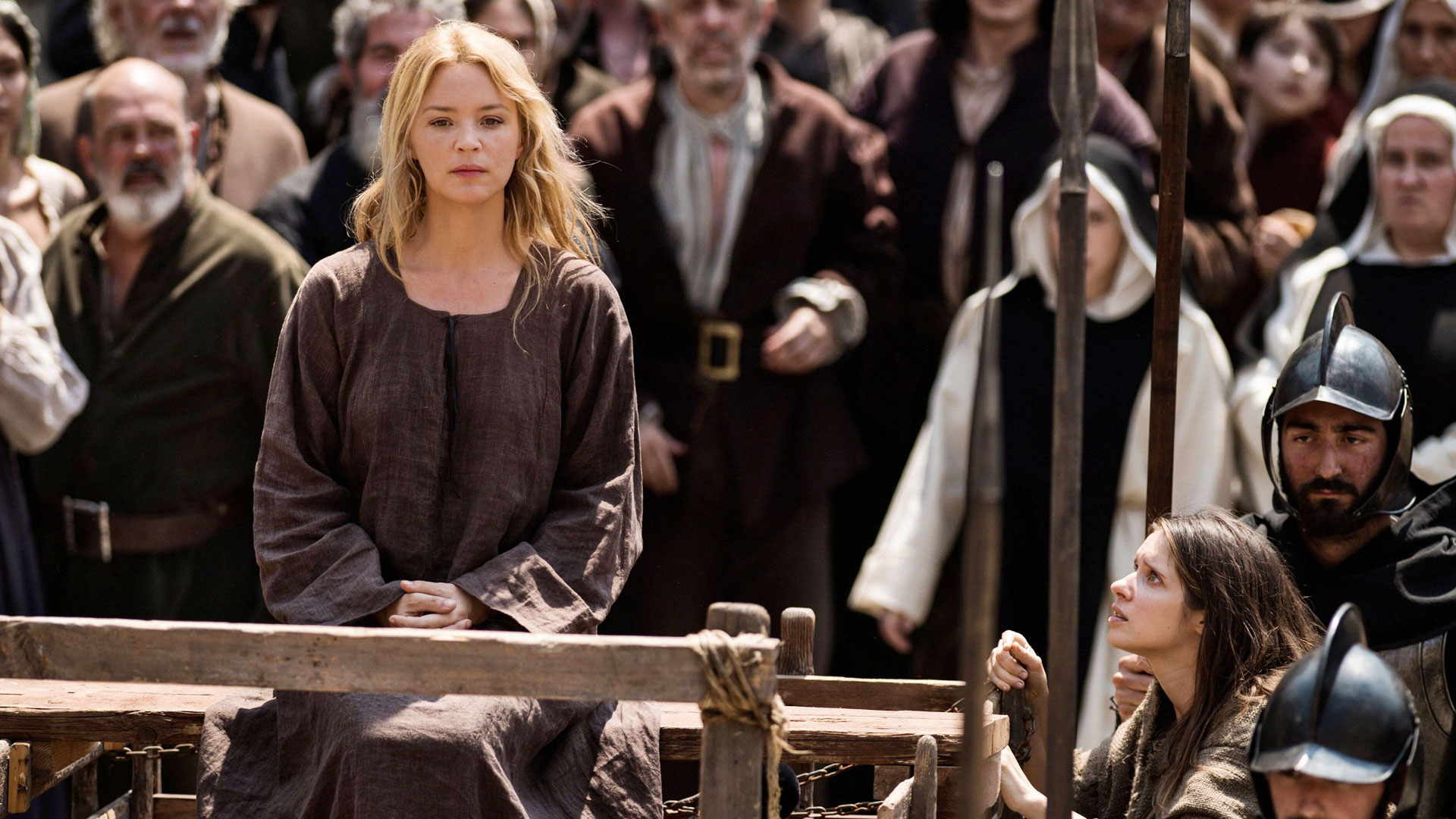
The film also features extreme violence and gore in Benedetta’s visions. I found these depictions to be unrealistic and over-the-top. Perhaps the filmmaker intentionally used exaggerated performances to emphasize that these visions were not grounded in reality.
Furthermore, the filmmaker also incorporates a red comet and the plague that devastated Italy into the narrative. However, historical records indicate that the plague actually began decades after Bartolomea’s banishment from the convent. While artistic license is certainly permissible, the film does seem to introduce elements that potentially distract from the core story.
I like the film’s portrayal of one of the fascinating aspects of Christianity and the role of convents for those seeking to serve God. However, the convent seems to contradict itself by suggesting that wealth plays a role in gaining entry to the convent, implying that spots could be secured by those with means, potentially excluding those without.
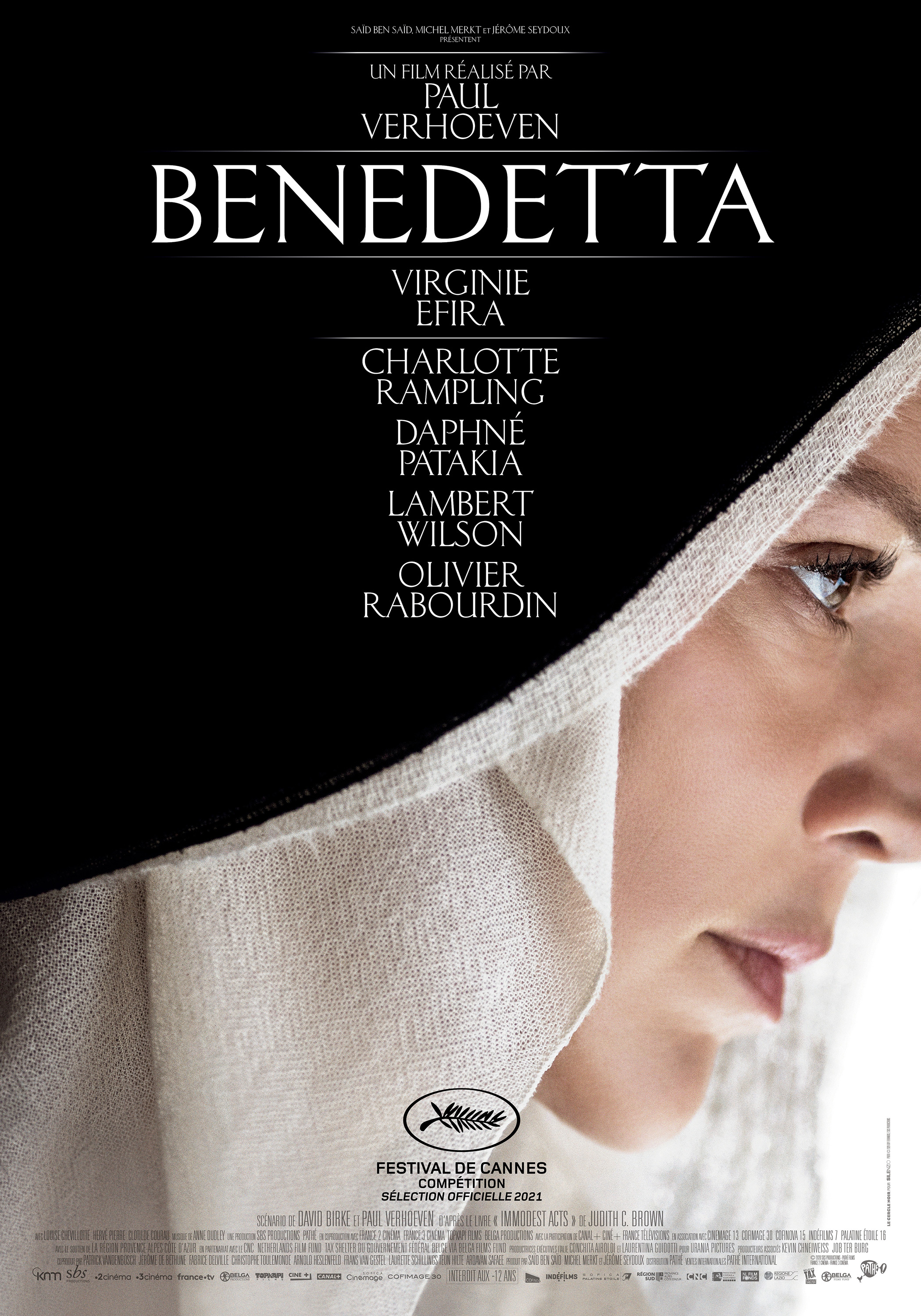
BENEDETTA premiered at Festival de Cannes in competition for the Palme d’Or on 9 July 2021. The film was theatrically released in France on the same day.




